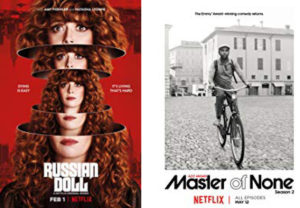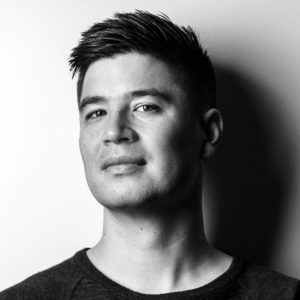
In the Netflix series Russian Doll, Nadia (Natasha Lyonne) keeps dying over and over, returning to her own birthday party as she tries to figure a way out of the unending loop. The show uses music as a dominant force to complement the drama and its comedic moments, masterfully balancing the emotional tone of the story. Composer Joe Wong was tasked with creating original music for this quirky world.
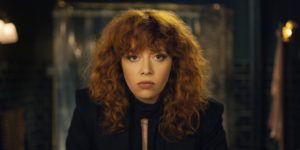
Wong was inspired by music from the 1960s and ’70s for the series. “When I was composing the score, I tried to make it sound like it could have been recorded 50 years ago or it could have been recorded yesterday,” he said. “I used instruments and recording technology that was 50 years old and I tried to limit it to a palette that sounded at home with the songs that were in the soundtrack. But the show has these time loops and I wanted the music to feel like a series of modular melodic loops that could stack inside of one another like a Russian doll.”
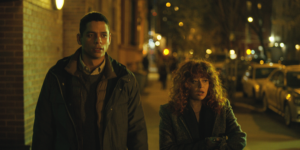
The score seamlessly parallels the soundtrack’s songs from an earlier era, which include Harry Nilsson‘s “Gotta Get Up” and Love‘s “Alone Again Or.” “Many of the songs for the show are founded in the psychedelic era of the late ’60s to ’70s. To reflect that, I didn’t use any recording technology or instruments in my scores that didn’t exist back when those records were being made. So there were lots of acoustic instruments — a harp, a vibraphone, drum set, bass guitar, a Farfisa organ, violin, and cello,” said Wong. “Essentially, I wanted the score to feel like it could have been on the radio during that time. I didn’t want the music for the show to stick out at all; it had to fit with that era and not seem jarringly modern. And although it doesn’t sound like it’s particularly from the ’60s, it could have been in the ’60s. The show has a timeless quality to it where it doesn’t necessarily feel like it was made in 2018, it could have been made anytime really.”
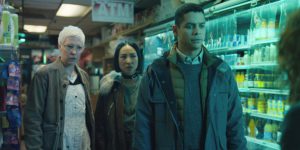
Wong’s melodic themes are key to the characters, their state of being, and the situations they find themselves in, as he explained. “The whole series basically occurs over the course of Nadia and Alan living in this loop. But the loop doesn’t stay exactly the same every time; each time things go away. So every time they come back we’re looking at things from a slightly different perspective — things are skewed a little bit each time the themes are heard. I made the music become more minimal as it appears throughout the episode, so I would strip away one or two elements as the world was vanishing around them and the music becomes more barren. In the end, when their world cames back, I brought everything back.”

When the characters’ stories are intermingled, Wong used the themes in creative ways, such as stacking themes inside of one other. He wanted to avoid cliché in the show’s more comedic moments, however. “The actors are so funny that I didn’t need to make the music all that goofy, it just needed to punctuate what they were doing,” he said. “The comedic music is very percussive. Originally those cues were fleshed out with more melodic instruments but we decided to strip that back as we found it more effective to keep it more minimal. Throughout the process, I was trying to support the emotional drive of the story and enhance what’s happening on the screen or, in some cases, to create or augment the ambiguity.”
As well as Russian Doll (2019), Joe Wong has achieved acclaim for his scores for Master of None (2015) and To All The Boys I’ve Loved Before (2018).
